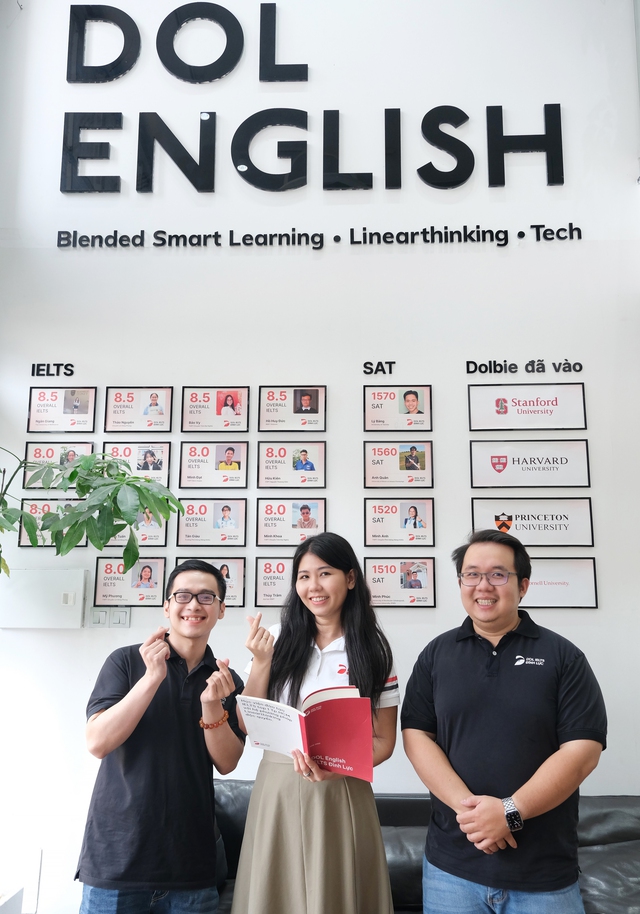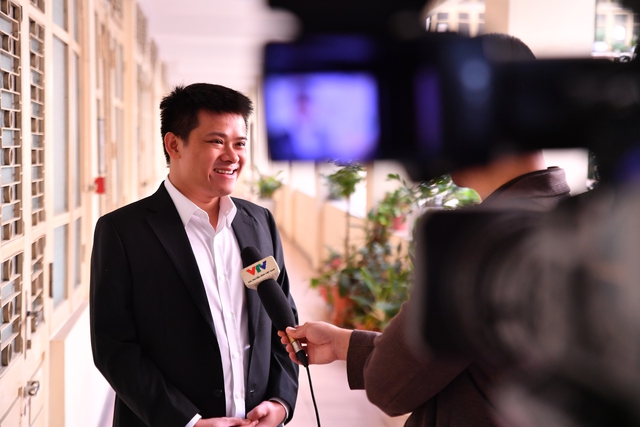
Seeking smarter paths to scholarships, English proficiency in Vietnam’s evolving education landscape
After Vietnam’s challenging national high school graduation exam last month, educators say the new landscape is opening doors for students to approach learning – and English – with sharper focus and more strategic planning.
Students complained about the math and English tests, saying they were too difficult, which shows that the papers were designed to test their critical thinking more rigorously than before.
But rather than being a barrier, experts say this shift could be the motivation students need to adopt more effective learning methods and explore scholarship opportunities abroad earlier and more thoroughly.
One such method gaining attention is Linearthinking, a learning strategy being promoted at DOL English in Ho Chi Minh City.
The approach emphasizes logic, structured reasoning, and deep understanding over rote memorization, key traits not only for standardized tests like IELTS or SAT but also for scholarship essays and interviews.
Preparing early is key
"Grade 10 is the ideal time for students to begin exploring scholarships seriously," said Pham Thi Nhung, who holds a master's degree in educational management and currently oversees career counseling and university application support at Scotch AGS Australian Grammar School in Ho Chi Minh City.
Nhung spoke during a panel discussion on mastering English and winning study-abroad scholarships.
"Students need support from both parents and schools in building academic competence, selecting subjects, planning career paths, and developing soft skills," she said.
While many students and parents worry that low national exam scores in English or math may hurt their scholarship chances, experts say the reality is more nuanced.

Applying the Linearthinking method, three teachers at DOL English achieved perfect 9.0 scores on the IELTS test.
Holistic review process
"Of course, test scores matter but only to a certain extent," said Do Thi Ngoc Anh, an IELTS instructor at DOL English.
A former scholarship recipient, Anh earned an honors bachelor's degree in Russia and later a distinction-level master's degree in the UK.
"Foreign universities evaluate candidates holistically," she said.
"They consider high school GPA, international test scores like IELTS or SAT, personal essays, community involvement, and soft skills.
"A single test score won't define a student's future."
Nhung noted that students enrolled in the Australian Baccalaureate program at Scotch AGS are taught entirely in English across all subjects, which builds not only language skills but also research and reasoning abilities.
These students are also given opportunities to participate in extracurricular activities that enhance their scholarship applications.
The school offers AGS Talent Scholarships worth up to 70 percent of tuition over three years for outstanding middle school students.
"All our students receive university and career counseling to help them prepare competitive applications for scholarships at higher levels," Nhung added.

The Linearthinking method at DOL English was co-researched and developed by Le Dinh Luc, a former math major at the High School for the Gifted under the Vietnam National University-Ho Chi Minh City.
Linearthinking: A shortcut to mastery
At DOL English, Linearthinking is credited with helping students significantly cut down the time it takes to reach high English proficiency.
"Instead of spreading yourself thin trying to memorize everything, focus on understanding how ideas are connected, and building a system of knowledge," said Anh.
She added that Linearthinking is especially effective in reading comprehension, even for students who have not yet built a large vocabulary.
"It's a method that improves performance not just in IELTS and SAT, but also in Vietnam's national graduation exams and university entrance tests," she said.
Communicating with impact
Tran Thien Minh, an IELTS and SAT instructor at DOL English who has twice scored a perfect 9.0 on the IELTS, said Western universities often require interviews or personal essays to evaluate a candidate's character and fit.
Minh, a former high school scholarship recipient in the U.S. and honors graduate in Australia, stressed the need for specificity.
"If your interview or essay is vague, it won't impress admissions officers," Minh said.
"The solution is to apply Linearthinking to how you speak and write — every argument you make should be backed by clear, persuasive examples and delivered in a coherent structure."
As the demands on students increase, so do the opportunities — for those who know how to prepare.
And as more Vietnamese students aim to study abroad, educators hope that strategies like Linearthinking will help them not only pass exams but also tell their stories with clarity, confidence, and conviction.
Yen Viet / Tuoi Tre News